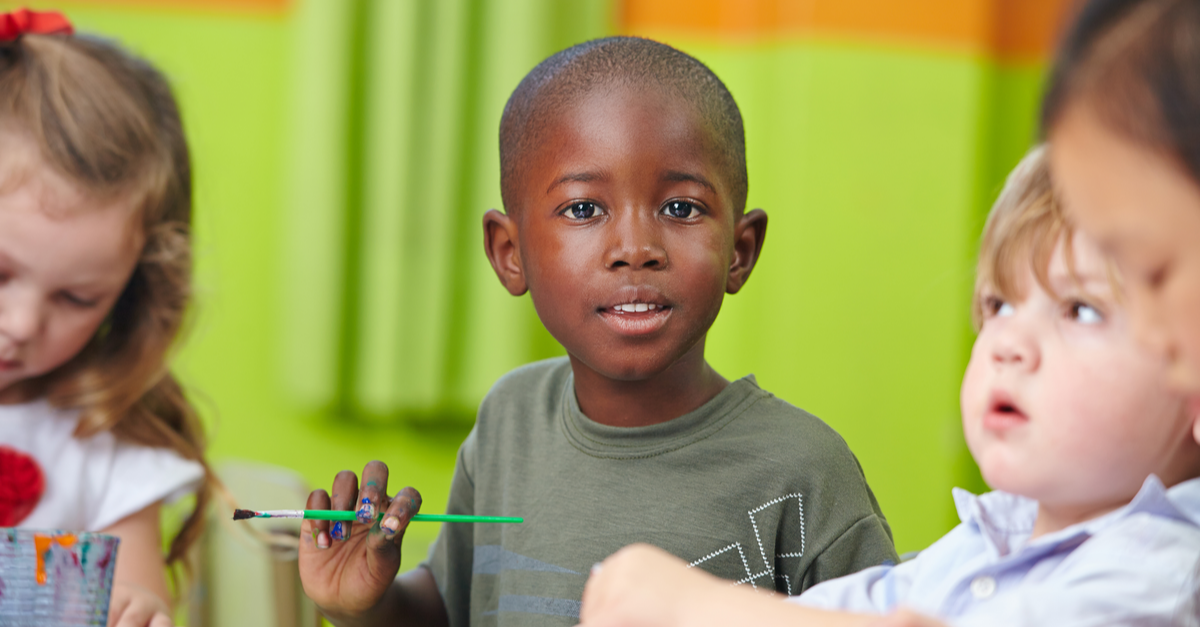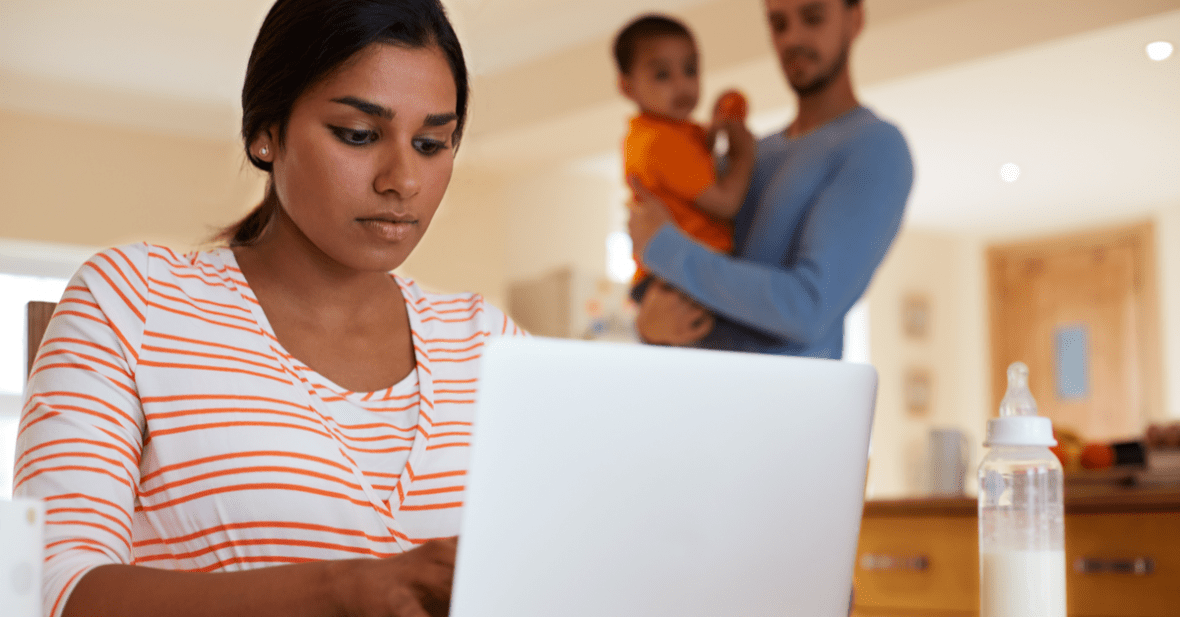Last Updated: Mar 14, 2020
By Tracy Collins Ortlieb
As of March 13, a total of 18,700 U.S. schools have been closed or are scheduled to close in response to the growing novel coronavirus pandemic, according to Education Week. To date, an estimated 8.1 million students have been displaced by coronavirus school closures in an effort to contain COVID-19.
Parents, forced to amend current child care arrangements drastically, are feeling the financial impact of such decisions. Child care centers are also feeling the economic impact that comes with closing down their centers and losing revenue. Parents who depend on older family members for child care are faced with choosing to risk exposing them to the coronavirus or trying to find other — often costly — child care. The costs of the coronavirus continue to mount, leaving many parents struggling to manage new child care costs associated with closed schools and day care centers.
1. The Financial Impact of Coronavirus on Working Parents

Laura Richards of Milford, Massachusetts, is mother to a 6-year-old who regularly attends after-school care. When a school staff member was quarantined earlier this week for coronavirus exposure, Richards and other school families were forced to not only arrange child care for normal school hours, but to replace their previously contracted after-school care.
“I have two high school seniors and a freshman,” Richards says. “I work full time from home, and I’m incredibly fortunate in that, because their schools also closed, they can take him to play if I have a call or am working on deadline. It truly makes me feel for the parents in restaurants, hospitality, transportation — parents who can’t work remotely and don’t have older kids to help. I have no idea how these folks are coping.”
Nationwide, nearly 60% of children under the age of five regularly attend some form of child care, according to a 2019 report by the Center for Economic Development.
School Closures and No Paid Time Off
While tech companies such as Amazon, Apple and Twitter have urged employees to work from home during the pandemic, many jobs — nursing and firefighting for example — don’t lend themselves to working from home. School closures for many parents can mean taking time off work to care for kids without paid time off, losing pay for days unworked or perhaps losing their jobs entirely.
Some analysts are advocating that because the availability of child care supports countless other industries, any U.S. economic bailout related to COVID-19 should include investment in America’s child care infrastructure. Coupled with the proposed affordable child care policies of multiple presidential ticket candidates, the arrival of COVID-1 introduces long-overdue upheaval to the nation’s approach to child care and education.
2. The Financial Impact of Coronavirus on the Child Care Industry

Rampant school closures due to coronavirus are intended to counter the spread of COVID-19, often after a parent or other community member tests positive. The impact of the virus on preschools, day care centers, and other early childhood education and care providers is more difficult to measure: These facilities are frequently smaller, and many are privately run.
Diana Lazu, president of Chicago’s Caterpillar Care, says that while her child care centers remain open, “As a small business owner, I am now starting to feel some loss.” Despite tighter visitor and cleaning protocols, Lazu notes, “There were two children that were supposed to start day care in the next few weeks, but (due to COVID-19) those parents opted to go for a nanny instead.”
With an economic impact of $99 billion — $47 billion in annual revenue and $52 billion in worker wages and purchases — the U.S. child care services industry is on a steady upswing, growing with the swelling national birth rate. While the CDC recently issued resources to child care facilities regarding COVID-19 preparation, successful implementation of CDC guidelines at tens of thousands of sites — some 54,000 commercial facilities plus about 21,000 facilities run by nonprofit organizations — remains to be seen.
When child care centers close unexpectedly, whether it’s for something as standard as a snow day or as novel and uncertain as the coronavirus, “we’re thrown into a tailspin,” says Emily Farris of Kansas City, Missouri.
With her infant in part-time day care and in-laws who pick up the slack, Farris is deeply concerned about COVID-17’s impact on her child care facility.
“We’re preparing for a big hit,” she said, “particularly as my in-laws are about 40% of my baby’s care, and we don’t want them more exposed to this virus than need be.”
3. The Impact of Coronavirus on Older Child Care Providers

Farris strikes a note stressed by the Administration for Community Living: Older people are twice as likely to contract coronavirus, and their exposure to potential carriers should be as limited as possible.
According to Patty Hayes, Seattle and King County public health director, shuttering schools may be antithetical to protecting the community’s most vulnerable. “When we close a school, children have to go somewhere,” Hayes said in a news conference last week. “So if you think about families, who often are the caregivers, it might be grandma, grandpa and elderly members of the family, the exact people that we’re concerned about.”
What About Keeping Schools Open?
Instead, schools and child care facilities — including all San Francisco Unified School District schools — as yet untouched by the coronavirus, are often opting to remain open as leaders seek ways to slow the spread of COVID-19. The data behind the decision: A recent study of 44,672 people with confirmed COVID-19 infection found that children under age 10 made up less than 1% of those cases, and zero of the 1,023 deaths.
While it’s unclear what role children might play in transmitting the new coronavirus, experts said it is now clear that their rate of serious illness is far lower than it is for adults.
Clarissa Ng of Brooklyn, New York, notes that her 3-year-old’s child care center once welcomed parents for breakfast, but has since barred parents from the premises.
“There are also now three temperatures (taken) per day, and field trips have been canceled,” Ng says. “But personally, I’m pleased that they’re taking steps to decrease the infection risk. They’re also teaching my girl how to wash her hands properly, and that’s a skill she’ll use forever.”
The impact of the coronavirus will be felt well beyond the health care implications. The closings of schools and child care centers will impact family budgets and any businesses that deal directly or indirectly with child care.
Hopefully, the precautions taken now by the government and private companies to stop the spread of the illness will ensure that these closures are short-lived. If this teaches us one thing about the child care system in the U.S., however, it’s that we may need a complete shift in thinking when it comes to how education and child care systems operate.
Tracy Collins Ortlieb is an award-winning journalist and copywriter. Ortlieb specializes in parenting and family, travel and hospitality, financial and legal topics for such outlets as Parents, SheKnows, and Avvo. She lives in Chicago with her husband and daughters.
Sources
Centers for Disease Control and Prevention. Coronavirus Disease 2019 (COVID-19). “Guidance for School Settings Before and During an Outbreak.” Accessed March 13, 2020.
Committee for Economic Development of The Conference Board. “Child Care in State Economies.” Accessed March 12, 2020.
Education Week. “Map: Coronavirus and School Closures.” Accessed March 13, 2020.
JAMA Network. “Characteristics of and Important Lessons From the Coronavirus Disease 2019 (COVID-19) Outbreak in China.” Accessed March 13, 2020.
Published at MoneyGeek




